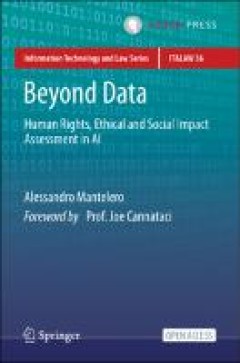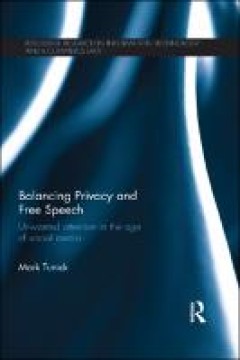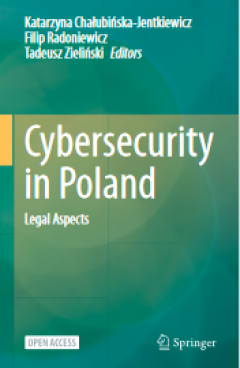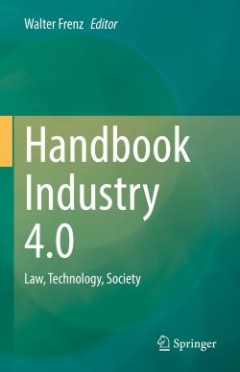Ditapis dengan

Beyond Data: Human Rights, Ethical and Social Impact Assessment in AI
This book focuses on the impact of Artificial Intelligence (AI) on individuals and society from a legal perspective, providing a comprehensive risk-based methodological framework to address it. Building on the limitations of data protection in dealing with the challenges of AI, the author proposes an integrated approach to risk assessment that focuses on human rights and encompasses contextual …
- Edisi
- -
- ISBN/ISSN
- 978-94-6265-531-7
- Deskripsi Fisik
- 215 hlm.
- Judul Seri
- Information Technology and Law Series
- No. Panggil
- -

Balancing Privacy and Free Speech: Unwanted Attention in the Age of Social Media
In an age of smartphones, Facebook and YouTube, privacy may seem to be a norm of the past. This book addresses ethical and legal questions that arise when media technologies are used to give individuals unwanted attention. Drawing from a broad range of cases within the US, UK, Australia, Europe, and elsewhere, Mark Tunick asks whether privacy interests can ever be weightier than society’s int…
- Edisi
- -
- ISBN/ISSN
- 978-1-315-76313-2
- Deskripsi Fisik
- 239 hlm.
- Judul Seri
- -
- No. Panggil
- -

Cybersecurity in Poland: Legal Aspects
This book explores the legal aspects of cybersecurity in Poland. The authors are not limited to the framework created by the NCSA (National Cybersecurity System Act – this act was the first attempt to create a legal regulation of cybersecurity and, in addition, has implemented the provisions of the NIS Directive) but may discuss a number of other issues. The book presents international and EU…
- Edisi
- -
- ISBN/ISSN
- 978-3-030-78551-2
- Deskripsi Fisik
- 506 hlm.
- Judul Seri
- -
- No. Panggil
- -

Handbook Industry 4.0: Law, Technology, Society
The handbook presents an overview of Industry 4.0 and offers solutions for important practical questions. The law and its current challenges regarding data assignment (who owns the data? / EU guidelines), data security, data protection (General Data Protection Regulation), cyberattacks, competition law (right to access vs. monopolists, permissible and prohibited exchanges of information, possib…
- Edisi
- -
- ISBN/ISSN
- 978-3-662-64448-5
- Deskripsi Fisik
- 1221 hlm.
- Judul Seri
- -
- No. Panggil
- -
 Karya Umum
Karya Umum  Filsafat
Filsafat  Agama
Agama  Ilmu-ilmu Sosial
Ilmu-ilmu Sosial  Bahasa
Bahasa  Ilmu-ilmu Murni
Ilmu-ilmu Murni  Ilmu-ilmu Terapan
Ilmu-ilmu Terapan  Kesenian, Hiburan, dan Olahraga
Kesenian, Hiburan, dan Olahraga  Kesusastraan
Kesusastraan  Geografi dan Sejarah
Geografi dan Sejarah